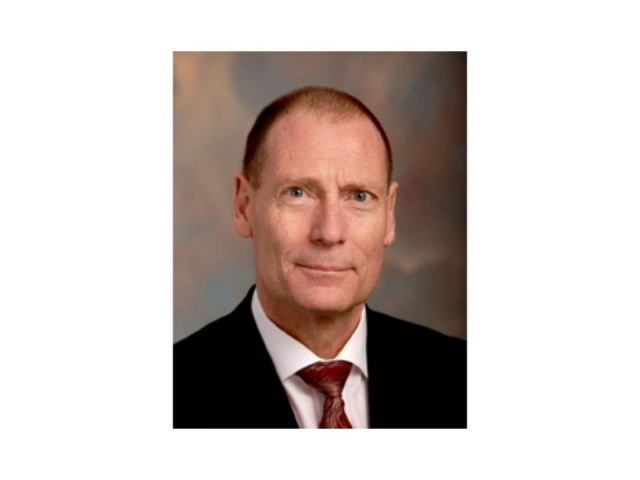Leadership isn't a zero-sum game: Marten Kruysse speaks to how to run a city council
NOTE: These interviews are only slightly edited for clarity and brevity. They consist of the actual words spoken by the candidates, who were not given any opportunity to prepare answers in advance. My intention is to give readers an idea of how well the candidates are able to think on their feet and to express themselves in response to the questions. Readers will no doubt think of other questions — please attend the All-Candidates Forum at the Miners Hall on November 3rd at 7:00 pm, hosted by the Rotary Club, and ask your questions there!
SG: Marten, I’m interested in your views on what Council’s role is, and how you think the relationship between Council and the CAO and staff should work.
MK: You know, I always hear that Council’s role is policy, policy, policy. It’s obviously more than that. One of Council’s responsibilities is to hire and work closely with a CAO. It’s to make sure that the organization is properly managed, and that it meets the objectives of Council. The role of Council is to establish organizational direction. And it’s a trustee of the citizens, in terms of financial management. And of course, it’s a body that must provide leadership, and is responsible for two-way communication, between the City as an organization, and the taxpayers and users of the City’s services.
SG: How do you think Council members should handle differences of opinion between them at the Council table? If you strongly disagree with another Council member’s suggestion or opinion, how do you respond?
MK: First of all, Council members, as individuals, have a responsibility to recognize that they are part of a team. They must also recognize that while differences of opinion are healthy and useful, it’s important to arrive at the best decision, and in a democracy, you may not get what some people think is the 100% best decision, but you try to get the decision that is 90% good.
SG: I’m also getting at the degree of courtesy and respect that should be practiced at the Council table.
MK: Right. You know, there’s a lot of advice out there on how to build a strong team. And there are certain prerequisites, and as a responsible representative of taxpayers, you have a duty to live up to those prerequisites, for participating on a team. And I’m not going to go through that long list of things, but certainly respect for other people’s opinions, to strive toward consensus, that it shouldn’t be a zero-sum game, and to recognize that when it devolves to that kind of zero-sum gamesmanship, that it becomes destructive very quickly, and that is not in the public interest, and the people who engage in that kind of gamesmanship really aren’t doing the public a good service.
SG: On to remuneration; Rossland’s Council members are among the lowest-paid in the province, if not the lowest-paid, for a community of our size. And our senior staff are said to be among the highest-paid for a community of this size. What do you think about each of those facts?
MK: Well, I think there’s two separate issues there; one is Council remuneration, and one is staff compensation. When it comes to staff compensation, it’s a delicate subject. It involves emotions, it involves perceptions, we’ve all been there on both sides of that table, when it comes to compensation — everybody reports to somebody at some stage of the game, so most people of course feel that they’re worth more than they’re getting. And it’s a sensitive issue.
But there are different forces at play; there are market forces, there are industry comparables out there that provide a guide, I suppose, so ultimately you can set goal-posts for the compensation discussion. Within that, what is often missing is the relationship between compensation and competence, or performance. And I believe in Rossland we’ve talked a lot about performance measurement as a way of determining competence, but I don’t think we’ve ever put that kind of system in place, to my knowledge. Someone can correct me if I’m wrong about that.
It’s no different in most small organizations, they don’t have the expertise or knowledge to do these things, or they don’t make the time to do them. I think there are tools that can be employed by an organization to improve the fairness of compensation. I can’t comment, currently, on the salaries at the City because I’m not aware of the salaries with the exception of the CAO position, and as you know, Council hires one person, and that’s the CAO.
In terms of Council remuneration, you know, it’s a tough one, because most people don’t run for the money, and I remember Marc Marcolin, when he was Mayor (of Trail) kept track of all his expenses, and he said at the end of his term, that he had expended what he had gained in income. I think the Rossland compensation would probably offset somebody’s out-of-pocket expenses for participating on Council.
SG: So you feel that’s good enough, that it’s fair?
MK: I don’t know … again, going back to Marc Marcolin, before he became Mayor, he made an interesting point. He said, you can ask volunteers to do all kinds of things in the community, and they’ll willingly do them. But you can’t expect volunteers to both volunteer and also pay the burden of out-of-pocket expenses. And I think that’s where, for volunteer positions in the public sector, that’s where the compensation issue begins.
SG: Back to staffing issues, everyone is aware that our CAO is off on indefinite medical leave, and at some point — we don’t know when — the City may need to hire a new CAO. When that happens, how do you think Council should go about that? What should the hiring process be?
MK: To me, it’s an unacceptable approach for a public organization such as Rossland to hire a CAO without consideration of alternative candidates. That’s the starting point.
SG: Do you mean, a public posting of the position, and competition?
MK. There needs to be consideration of more than one candidate. But before you even go through that search thing, one needs to have a really good understanding of where the organization is going. And that in turns helps to identify the strategic issues for change. And once Council has an intimate familiarity with what needs to change going forward, and — let me just say, every organization is constantly changing — but usually it’s about the rate of change, and the nature of the issues: how complicated, how complex they may be. And once you have a good handle on that, then you determine what kind of person you need — what skill set, what personality, what kind of experience you may need to ensure that the organization remains competitive and successful. And for that reason alone, you need to consider a number of candidates.
From my experience, governments tend to hire people who have held similar positions in the public sector. And in my experience, when you hire people who have great skills and competencies from other types of organizations, sometimes it works out very well. So I think it behooves an organization to consider some of those non-traditional kinds of candidates, as well. That could bring some much-needed expertise and experience to an organization.
SG: Thank you. Now, another local concern is how to maintain Kindergarten to Grade 12 education in Rossland. You may be aware that the City has supported Esling Park Lodge with taxpayer money, I don’t have the exact amount but I think it’s over two hundred thousand dollars now, to give seniors an opportunity to stay in Rossland. A worthy cause. I wondered whether you think the City should also support keeping K-12 in Rossland, to keep families with children here, too. Is that an equally worthy cause?
MK: I think there are two things at play. Number one, is, you know, cities have authority to deliver roads and sewers and other essential services. On the other hand, municipalities can get involved in supporting a variety of community interests. In some municipalities there are many social programs that communities have — they have social planners, they have day-care facilities, programs for the homeless, and so on. They tend to be larger municipalities that run surplus budgets. It would be great if Rossland could get to a financial position where it had more money and was a totally financially sustainable organization. But given the financial challenges of Rossland, and given that it’s in Rossland’s best interests to have a vibrant community, it really does have to have a bit of eye on the social issues in the community, being education, seniors’ housing, affordable housing, that kind of thing.
The capacity for Rossland to do a lot about those things is limited, because of the infrastructure challenges today and the infrastructure challenges that are on the horizon, which are going to have significant impacts on Rossland, so being able to plan ahead is a major responsibility and a major undertaking for Rossland at this time. So where does it leave social services and supporting them? The permissive tax exemption is one possibility, and I think that’s a good way of supporting the new school.
SG: Moving on to development now, how do you feel about where it happens — do you favour expansion further out beyond the currently settled areas, or infill?
MK: I think it’s a non-issue, because in Rossland we’ve got more developed subdivisions with vacant lots than in most communities our size. The absorption rate is slow-ish, it’s not high, it could accelerate — it could be a little higher. And hopefully, this would help add much-needed housing, would support population. Certainly it’s a truism that infill is a good thing. We have a number of places with parcels that have services running by, and if those are developed, it’ll add tax revenue for Rossland. So Rossland benefits proportionately more from (infill) than if you approve another subdivision on the outskirts of town.
SG: OK. The free shuttle bus running between Red and town has been enormously popular, and has been operated on the Resort Municipality Initiative funding that is a share of the accommodation tax. We’ve heard that the RMI funding may be coming to an end in 2016, and I wonder whether you have an opinion about what, if anything, the City can or should do to support the continuation of that free shuttle service. One of the aims of the shuttle service is to reduce greenhouse gas emissions by reducing individual car use, and it has been quite successful.
MK: I think that the destination marketing organization — the DMO — should be customer-driven.
SG: Going back to our core services — our rather long water collection pipes, waterlines, sewer lines — those have been in place for a long time, and they’re failing. What are your views on maintaining infrastructure in a small municipality with no industrial tax base?
MK: Rossland is no different than any other organization, public or private; it’s constantly searching for new revenues and how to mitigate costs, and how to make expenditures as efficient as possible. Rossland is, as everyone knows, further challenged because it is supported primarily by a residential tax base. Rossland’s infrastructure is further challenged because parts of it are very old. And I think the credit has to go to Rossland over the years in keeping the doors open, so to speak.
I think, going forward, it may be more challenging now — we’ve done some fine work downtown, by the looks of it, a credit to Rossland — that’s created some debt, and there are some bigger commitments coming up — a sewage treatment plant, we’ve just heard of the pipe crossing over the Columbia River, we’re talking about road re-paving throughout Rossland as a need, and certainly what’s under the road matters and will likely bring forward additional costs. So, how does Rossland deal with it?
Again, you have to keep one eye on being competitive. You can’t just indiscriminately raise taxes, because you have to remain competitive, and Rossland’s property taxes are already at the higher end of the spectrum, for municipalities large and small. There are innovative ways, and more creative ways, out there, and I think we need to start looking at ways of dealing with those real, key needs — the capital expenditures — that we can’t avoid. The other thing is, the business of capital gap. Certainly, you can’t do everything. But you should know what your infrastructure needs are; and you can’t fund them all, of course — that constitutes something called “capital gap”.
Municipalities don’t do balance sheets, but if you did do a balance sheet, which I would highly recommend for a small community, it’s easier for a smaller community than for a larger one — then you could introduce a liability there, referred to as a capital gap. And then, you are managing more realistically, when you are talking about setting property taxes, setting fees, when you are looking for outside money — and from time to time there are sources of outside money — and if you have some of these projects shelf-ready, more or less, then you’re in a position to jump on that funding. If you always wait until the announcement, and then start preparing applications, there’s usually no money by the time your application is submitted.
SG: Marten, you’ve worked in North Van. Are you still working and living there part of the time, or are you in Rossland full-time now? I’m getting at your ability to attend Council meetings.
MK: With respect to North Van, I’m retired from there but I still have an advisory relationship with them, in that if they need advice, they call me. And I do speak with them just over the phone, with their corporate planner and CAO and mayor … that’s about it. I just spoke with their corporate planner this week.
SG: Do you still have a home there?
MK: No. We gave up our condo there. I’m a permanent resident here. I still have to go to Southeast Asia, to Vietnam, to Hanoi in December — to a conference and make a presentation.
SG: But you would still be able to attend the swearing-in procedure?
MK: The swearing-in, yes, but if elected I’ll have to miss the first official meeting. I just found out about it; I hadn’t realized it would be that early. But I’m a full-time resident here, and I’m more retired than not. You know, I’d like to make sure that Rossland is outward looking, and that Rossland consider relationships outside of the region that could bring benefits back to Rossland, to strengthen the organization.
SG: The community?
MK: I make a distinction. I talk about “the organization”, I’m not talking about the City of Rossland — I’m talking about the service provider, and that’s what I’m running for — I’m running for a Council that is, you know, the trustee for the organization, the service delivery agency. Too many people confuse the community with the city organization. And unless you have that very clear in your mind, you make the wrong decisions.
SG: And yet, having a strong organization helps to have a strong community.
MK: Absolutely, yes.
SG: Speaking of delivering services, I just note that Rossland has some bylaws that aren’t being enforced. I’m not sure many people even know about them. For instance, the anti-idling bylaw. I’m wondering what your views are on the value to the community of having a bylaw enforcement officer.
MK: Again, easy to say, more difficult to do. Council’s role is to make sure that the number of rules we have can be managed. That’s one of the attributes of a successful organization. It’s easy to make new rules and it’s tough to implement them. A good city manager has the knowledge of the capabilities within the organization, and how the organization can have the capacity to implement the bylaws. In a small community like Rossland, it’s very difficult — I mean, even the building code, it’s a huge piece of work! I don’t really know the answer to that. But I think it goes back to the whole management strategy, and if there are s significant number of complaints, a significant amount of conflict in the community, there has to be a management response to that.
SG: At the last Council meeting, there was a fairly long discussion about the Design Review Guidelines, regarding a couple of business signs in town. Do you think it’s more important to adhere strictly to the guidelines, or to support the businesses? Or should the guidelines be reviewed to ensure that they do support business more?
MK: I mentioned earlier about having good two-way communication; the businesses are not voters, but they’re a segment of the tax-paying public and they have needs that are different from residents. I have a lot of sympathy for businesses trying to get ahead, to make a buck, remain viable. It’s a very challenging thing to do in a small community. And that goes for everybody from the larger organizations to the very small ones. So I think, on the one hand, we say we value the business community, we are encouraging businesses to invest in upgrades and expansion, we are encouraging new businesses to come to town, and we really need to understand the opinions and perspective of the business community as they change. Because they do change, as market forces change, and regulations must be sensitive to those changing needs.
Now, signage — it’s necessary to businesses, but controversial in many municipalities: neon, LED lighting, the size of signs, the design of signs. In a democracy, you must have dialogue and come up with some consensus that works for the vast majority. And you know what? You may have to give up some aesthetics to support business viability. But at the same time, you want to maintain the ambiance and aesthetic integrity that we’ve spent money to create. It’s a very fine line. The only answer is through dialogue and discussion. But I think the key is flexibility, and a municipality’s willingness to change the rules if necessary.
SG: Thank you, Marten,. Now, is there anything else — can you tell us about your education and experience?
MK. I have 35 years of experience in business and local government. I have a Bachelor of Environmental Studies (Planning), from the University of Waterloo school of urban and regional planning, and a doctorandus from Utrecht University. That was in project planning and management. I also completed a Certificate in Leadership in Local Government at Royal Roads University several years ago. (A “doctorandus” is similar to a Master’ degree here.)

























